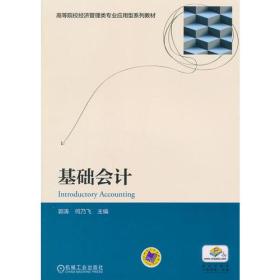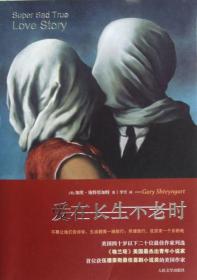
魂之乐事-音乐学术交流记实录(英文版)
¥ 16.63 1.9折 ¥ 88 全新
库存9件
山东泰安
认证卖家担保交易快速发货售后保障
作者Kimasi Browne 编
出版社中央音乐学院出版社
出版时间2018-01
版次1
装帧平装
货号605 11-6
上书时间2024-11-07
- 在售商品 暂无
- 平均发货时间 24小时
- 好评率 暂无
- 最新上架
商品详情
- 品相描述:全新
图书标准信息
- 作者 Kimasi Browne 编
- 出版社 中央音乐学院出版社
- 出版时间 2018-01
- 版次 1
- ISBN 9787810968874
- 定价 88.00元
- 装帧 平装
- 开本 16开
- 纸张 胶版纸
- 页数 293页
- 字数 360千字
- 正文语种 英语
- 【内容简介】
-
When I was taking the summer vacation after a semester at Wesleyan University in 2005, I received a sudden phone call from Los Angles. The person on the other side of the phone told me he had just returned from China after participating an event called "Africa Meets Asia" at the Central Conservatory of Music in Beijing. He said the event was a huge success and he was deeply impressed by the passion of his Chinese colleagues. The person on the phone was Kimasi Browne.
In autumn, at the annual meeting of the American Society for Ethnomusicology (SEM) in Atlanta l met Kimasi in person, along with Prof. Akin Euba, one of the masterminds behind the "Africa Meets Asia" conference and many international friends who have also attended events in China. We talked and exchanged our ideas, before deciding to organize a similar activity in 2007.
After retuming to China I became chair of the Department of Musicology. I discussed with my colleagues in the department and we agreed that we should have an academic event unique to our department, to serve as a channel of communication with international academia and help us to make up for our deficiencies, especially thoses in the practical pedagogy of music from foreign cultures. Meanwhile, it can provide a platform for academic exchanges for the Central Conservatory of Music with national, and even intemational reach. Thus we intended to continue the "Africa Meets Asia" event on a yearly basis and put it under the umbrella term "World Music Days". Depending on the collaborating
countries the event can be "Finland Meets China", "New Zealand Meets China" "JaDan Meets China" or "India Meets China", etc. Now the event,still fiourishing, has become a brand in the Department of Musicology of Central Conservatory of Music.
Kimasi showed up in the 2007 event. Two trips to China made a deep impression on him and a bond between China and his emotions, mind and academic pursuit formed. As the Department of Musicology of Central Conservatory ofMusic needed foreign teaching talents on its way to intemationalization, under the auspices of leaders of the conservatory, we invited Kimasi to give two courses, "American Pop Culture and African American Soul Music" and "American Gospel Choir Training" , the former being a theoretical optional course open to the entire conservatory, the latter being more practical: students from the Department of Musicology organized a "Diversified Music Choir" and practiced several times every week before holding a concert at the end of the semester. Both courses were popular among our students. From some of the articles collected in this book we can get a glimpse of their understanding and perception of "World Music Days" and two courses opened by Prof. Kimasi.
Though our time together is brief, our affections last long. After retuming to America Ptof. Kimasi still felt connected to China and the Central Conservatory of Music. He dreamed of retunung here. At many international academic activities heave reports related to China. In 2013, during the Intemational Council for Traditional Music (icrM) hosted by Shanghai Conservatory of Music, we enjoyed a reumon. - 【目录】
-
Preface
First Part: Articles from Guest Professors
A Banana in the Central Conservatory of Music
Scholarly, Cultural and Musical Encounters
——Finnish and Chinese Musicological Conference
Ethnomusicology by Whatever Name
——Cultural Relativist, Cultural "Ringers", and the Rest of Us
Music in China and Australia
——Exploring a World of Potential
Jazz in China: Duke Ellington and Miles Davis
Building Bridges; Nourishing the Soul
——Ten Years of Musical Activities in China
Zhu Jianer, Tibet, and Symphony no.3
Reflections on Musical Convergence and Adaptation between East Africa
(Ethiopia, Eritrea) and East Asia (Japan, China)
International Exchange in Music: Effective Means Toward Defining Ourselves
Gathering Community
Second Part: Articles in Chinese Perspectives(English Translation: Zhang Boyu, worked together with the Trans Translation Term. Proofreads: Jade Brown Jade Brown Roslan and Anna Yates)
点击展开
点击收起
— 没有更多了 —












以下为对购买帮助不大的评价